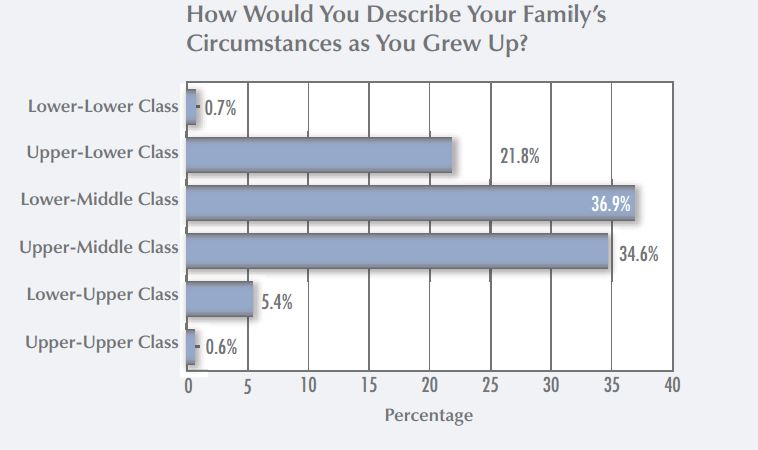By Imad Al-Rawashdeh
Translated by James Cain
لقراءة هذا المقال بالعربية، اضغط/ي هنا
Entrepreneurs; those young people who decide to change the world and realise their “personal legends”, those who decide to start something from scratch, hoping that not even an empire could stand in the way of their vision of how things should be. The Americans call them “disruptive”. Leading entrepreneurs like Steve Jobs are the role models they uphold. For millions of people, Jobs represents the idealistic and most precise model of entrepreneurship there is; from the floor of his adoptive father’s garage in California, the 20-year-old launched his famous brand, changing our lives once and for all; His story is perhaps one of the most extreme manifestations of ‘the American dream’.
“Entrepreneurship” may not be easy, but it also doesn’t seem to be that complicated. You don’t need more than just a clear idea and the commitment to realising it for this idea to come to life. Being an ‘entrepreneur’ is, as Steve Jobs put it, the difference between ‘those who simply dream’ and ‘those who act on their dreams’.
This notion, grandiose as it may be, has been transformed into a matter of pure consumerism, discarding any deeper analysis on the opportunities and obstacles on the road to realising the entrepreneurial dream that occupies the minds of millions of young adults around the world. The majority of newspaper articles and reports which attempt to offer a recipe for success to those who find themselves obsessing over this issue reduce the matter to a list of personal qualities: Be adventurous, perseverant, determined etc. It seems very much to be about the person themselves, the ability to excel and succeed in modern entrepreneurship simply comes to them. The blame is then placed firmly on their shoulders should they fail to keep pace in this international race.
A Dutch study, published in the year 1999, concluded that the “most important factor” in the success of any entrepreneurial project is the personality of the entrepreneur themselves, although it also recognised the importance of other factors, such as a having a degree, knowledge, and the profession itself. The study asked, “What is it that makes a project successful?” and then answered this question with, “the three main character traits are: the desire to achieve something, the desire for control, and the ability to take risks.”
Forbes Magazine, in collaboration with academics and experts carried out a survey of 10,000 entrepreneurs with the aim of finding out the secret behind their success. 61% of respondents to this survey agreed that “vision” is the single most important characteristic for a successful entrepreneur to have.
The remarkable thing about how this issue is tackled is that there is very often a neglect to follow patterns in the social, class and ethnic profiles of successful entrepreneurs in the digital age.
For example, merely saying that being able to take risks is one of the most important features of a successful entrepreneur is a gross oversimplification. What might be considered a risk for a young person from a low-income family, having just graduated from an obscure state university in either the American Mid-West or the Arab World, may not be considered a risk to their Harvard-educated, upper middle class peers.
While acknowledging that personal and psychological factors play an important role in making a person a good entrepreneur, other factors are equally important but less understood, according to a study by the University of Dartmouth. This study finds that the possibility of securing capital is the decisive factor determining whether an individual has the ability to become an entrepreneur and succeed in their quest, or not. And those young people who lack the capital to start their career usually retreat and refrain from taking the risks accepted by those who do own capital.
The Atlantic Magazine reported a similar result based on a paper by two professors at the University of California, Berkeley, who tried to explore the personal characteristics, demographics, and incomes of these entrepreneurs. The main findings of the study are that such entrepreneurs are predominantly white men with advanced degrees. In the sense, as far as the study goes, entrepreneurship seems to be “the ultimate defining feature of white men”.
The Kaufmann Foundation offers some valuable insights. Data from the institution, which is specialised in supporting entrepreneurial projects, indicates that the diversity of American society is not reflected in the nature of entrepreneurial projects undertaken in the country. More than 80% of pioneers are white and over 60% are male. Most of them, according to the Kaufmann Foundation, are from middle-sized to large cities such as Boston or Silicon Valley, but 34% of them are upper-middle-class.

“The Anatomy of an Entrepreneur: Family Background and Motivation” (July 2009)
Perhaps this is what has led some experts to now believe that entrepreneurship is, despite how it looks at first glance, not for everybody.
While she recognises the fact that the proliferation of the Internet and successive technological developments in the field of programming have reduced the start-up costs for small entrepreneurial projects, Karen Mills, one of the great researchers at Harvard Business School, is very pessimistic: “To become an entrepreneur is the right of affluent Americans”, she says in an article published on a number of American press sites.
In her article, the researcher points out that in the past entrepreneurial projects either relied heavily on the equity tied up in the entrepreneur’s home, which could be liquidated by the banks to release money, or these projects were dependent on the entrepreneur’s savings. Now, with low home ownership rates in the country, a decline in overall wealth in the hands of the middle classes coupled with the influx of federal loans to university students at various stages, millions of middle class citizens have seen the risk-taking ability diminish and they’ve fallen out of the world of entrepreneurship.
The matter is not dependent on the economic potential of the pioneers; their social and family backgrounds play a central role in their success or failure.
Larry Page, for example, who founded Google in 1996, is the son of university professors lecturing in computer engineering and programming. He himself obtained a doctorate in Computer Science from Stanford University, the same university where his Russian founding-partner, Sergey Bern also graduated with a doctorate. Bern’s father also happened to be a university professor, lecturing in Mathematics, while his mother worked as a researcher for NASA. Stanford is also the university where Steve Jobs studied before he abandoned his degree out of preoccupation with his budding project. Similarly, Bill Gates was born into a family of bankers and lawyers, he then studied at Harvard University before leaving without a degree in order to free up his time to work on creating Microsoft. What’s more, Mark Zuckerberg, the founder of Facebook, is the son of two doctors and he also abandoned his studies at Harvard University so that he could work on Facebook. The same goes for most of the four founders of Twitter, who studied at and graduated from major league US Universities.
This, however, is not merely a passing observation. In 2014, Forbes Magazine published a ranking of the top American universities based on the number of entrepreneurs produced by them as a relative proportion of the total undergraduate and postgraduate student body. Included in the ranking’s top 20 are seven of the world’s most prestigious scientific institutes such as Stanford and the Massachusetts Institute of Technology. Most of the top ranked universities are also some of America’s most overall highly ranked universities.
In the Arab world, the situation doesn’t just appear different, rather it is actually a lot worse.
Millions of students enrolled at universities in the Arab world have absolutely no hope in becoming entrepreneurs, especially when the declining quality of education in the region and lack of knowledge is being considered.
At any given time, while the American middle-classes are struggling to maintain their position, to enroll their children in local schools and prestigious universities, the likes of Harvard, Stanford, and Princeton, Arabs do not find any suitably similar model for making progress in the field of Science and Technology. It appears that millions of students enrolled at universities in the Arab world, save for less than a handful of anomalies, have absolutely no hope in becoming entrepreneurs, especially when the declining quality of education in the region and lack of knowledge is being considered.
A bleaker picture is painted when looking at the nature of the Arab economy in the third millennium. Today’s digital economy relies primarily on knowledge- its acquisition and accessibility- perhaps even more so than it relies on the acquisition of capital. The inability to obtain this knowledge in Arab academic institutions is one of the most important reasons for the efforts made by financially well-off families, which are indeed few in number, to send their children abroad to study in Western universities after they’ve received a quality education at private schools in their home country. It may then follow that fewer students from poor and low-income families are able to receive grants and scholarships for these universities even after having overcome the decaying educational infrastructure present in State-run schools.
In the context of these circumstances, two of the Arab world’s leading entrepreneurial projects, namely the Arabic e-mail site “Maktoob” and e-commerce site “Souq”, were founded by young people who studied at some of the best American and European universities – Stanford, John Hopkins, the University of London. Some of them even spent part of their lives working there, gaining the opportunity to learn about the nature of the economic climate and digital developments in business. It should be no surprise then, that when these pioneers return to their home countries they set up projects which imitate similar western projects such as Amazon and Yahoo, who in turn then purchased their Arabic imitations for hundreds of millions of dollars.
If we were to use our own personal observations to survey the leading entrepreneurs whose projects have changed our lives, we would easily be able to see a degree of correlation between the quality of their education, class and social background and their entrepreneurial success.
Comments such as this should be enough to deter anyone interested in developing the entrepreneurial sector in the Arab world. By and large, the most pioneering undertakings in the digital age rely heavily on the existence of a rising middle-class. Likewise, such undertakings form a pillar of middle-class society; helping it to survive and expand. In addition, entrepreneurship requires an equality in access to educational opportunities and quality education which should be available to youth in their own countries.
But, regrettably, with the consecutive hits taken by the Arab world’s middle classes, the scaling back of their capabilities to provide a good level of education to their sons and daughters in the wake of a collapsing public education system, and a private education system with ever increasing costs at the High School level, along with the poor teaching methods and low quality scientific research found at the university level, the dream of being an entrepreneur seems to be consistently beyond the reach of young Arabs. And while also acknowledging the existence of the problem in the West, albeit to a much lesser extent, it is at least subject to some discussion and research there, whereas in the Arab world it continues to be ignored and neglected.







